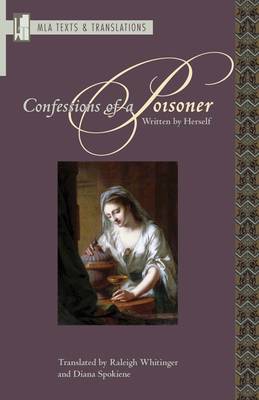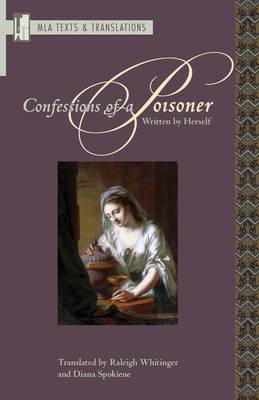
- Retrait gratuit dans votre magasin Club
- 7.000.000 titres dans notre catalogue
- Payer en toute sécurité
- Toujours un magasin près de chez vous
- Retrait gratuit dans votre magasin Club
- 7.000.0000 titres dans notre catalogue
- Payer en toute sécurité
- Toujours un magasin près de chez vous
Confessions of a Poisoner, Written by Herself
An MLA Translation
Description
In Berlin, 1803, readers rushed to their bookstores and libraries to learn more about Countess Charlotte Ursinus, who had murdered several people with poison and was now in prison. To their surprise, Confessions of a Poisoner, Written by Herself turned out to be not an account by this serial killer but a novel, its author anonymous and its pages filled with promiscuous sex, sharp social criticism, and dark humor.
In their introduction to the translation, Raleigh Whitinger and Diana Spokiene show how Confessions was written in response to a literary tradition (Richardson, Rousseau, Goethe) and how, in its questioning of the submissive images and roles of women, it anticipates feminist fiction of a century later. Whitinger and Spokiene also review the critical arguments about whether the author was a man or a woman.
Spécifications
Parties prenantes
- Traducteur(s):
- Editeur:
Contenu
- Nombre de pages :
- 242
- Langue:
- Anglais
- Collection :
Caractéristiques
- EAN:
- 9781603290654
- Date de parution :
- 01-01-09
- Format:
- Livre broché
- Format numérique:
- Trade paperback (VS)
- Dimensions :
- 137 mm x 213 mm
- Poids :
- 294 g

Les avis
Nous publions uniquement les avis qui respectent les conditions requises. Consultez nos conditions pour les avis.





